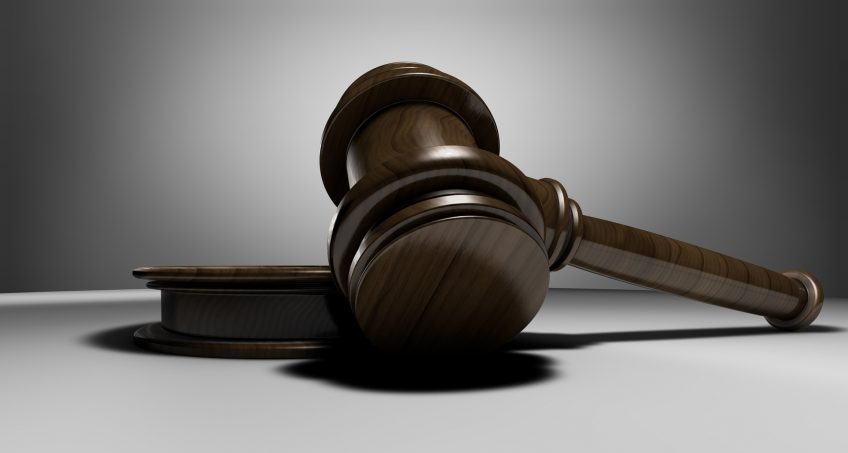Rear End Presumption For Sudden Stops At An Intersection
Car AccidentsIn the case of Lynn Fonger v. James Nall, Case Number 5D17-2927 (Fla. 5th DCA November 15, 2019), Florida’s Fifth DCA held that the sudden stop of an unidentified vehicle at an intersection does not rebut the rear-end presumption of negligence in Florida. Therefore, the plaintiff was entitled to a directed verdict on negligence. With that in mind, plaintiffs should be aware of Restal v. Nocera and how allegations of comparative fault will impact arguments under the rear-end presumption.
Facts
This case began when a tan sedan made a sudden stop at an intersection directly in front of Fonger. The light was green and there was no apparent reason to stop. Fonger applied her brakes and came to a stop without hitting the tan sedan. Thereafter, the tan sedan proceeded through the intersection but Nall’s vehicle struck the rear end of Fonger’s vehicle.
Nall defended the lawsuit by arguing that the sudden stop of the tan sedan was sufficient to rebut the presumption of negligence in Florida against him.
Fonger raised a motion for directed verdict arguing that Nall had not rebutted the presumption of negligence and that, therefore, the court should find that Nall was negligent in causing the collision. The trial judge denied Fonger’s motion for directed verdict and the jury found Nall not liable at trial.
The Appeal
This case provides an excellent outline of Florida’s presumption of negligence in rear-end collisions. However, in short order, the Fifth DCA reversed because they held that it was not unexpected that another driver would make a sudden stop at an intersection and, therefore, that Nall had not rebutted the presumption of negligence. This means that Fonger wins the issue of negligence and gets a new trial on causation and damages accordingly.
Outline of Florida’s Rear-End Presumption
- It is well established that a rear-end collision creates a rebuttable presumption that the rear driver was negligent. If left unrebutted, the presumption requires a directed verdict reflecting the rear driver’s negligence. Clampitt v. D.J. Spencer Sales, 786 So. 2d 570, 572-73 (Fla. 2001).
- To rebut this presumption, the rear driver must come forward with evidence or some explanation that “‘fairly and reasonably tends to show’ that the presumption is misplaced or that the ‘real fact is not as presumed.’” Birge v. Charron, 107 So. 3d 350, 360 (Fla. 2012) (quoting Eppler v. Tarmac Am., Inc., 752 So. 2d 592, 595 (Fla. 2000)).
- Once such evidence is produced, the presumption is rebutted “and all issues of disputed fact regarding comparative fault … should be submitted to the jury.” Cevallos v. Rideout, 107 So. 3d 348, 349 (Fla. 2012).
Four Situations Where Rear-End Presumption Has Been Rebutted
Courts in this state have generally recognized four situations to rebut the presumption: “(1) a mechanical failure in the rear driver’s vehicle, (2) the lead driver’s sudden stop, (3) the lead driver’s sudden lane change, and (4) the lead driver’s illegal or improper stop.” Douglas-Seibert v. Riccucci, 84 So. 3d 1086, 1088-89 (Fla. 5th DCA 2012).
Situations That Do Not Rebut The Rear-End Presumption
- It is also well established that a sudden or abrupt stop, without more, will not rebut the presumption of the rear driver’s negligence. Clampitt, 786 So. 2d at 575; Pierce v. Progressive Am. Ins., 582 So. 2d 712, 714 (Fla. 5th DCA 1991).
- Wright v. Ring Power Corp., 834 So. 2d 329, 331 (Fla. 5th DCA 2003) (to rebut the presumption of negligence in a rear-end collision through evidence of the lead driver’s sudden stop, the rear driver must show that 4 the stop was “not expected, i.e., ‘abrupt and arbitrary,’ and in a place not reasonably expected).
- Tacher v. Asmus, 743 So. 2d 157, 158 (Fla. 3d DCA 1999) ( “[i]t is not at all unusual for vehicles preceding through busy intersections, for example, to have to suddenly brake for pedestrians, emergency vehicles or other drivers running a red traffic light from a cross-street).
- Pierce v. Progressive Am. Ins., 582 So. 2d 712, 714 (Fla. 5th DCA 1991) (holding lead drivers’ stops reasonably anticipatable where, in crowded lane of traffic approaching busy intersection controlled by traffic light that was in view of rear driver, four vehicles were driving in a line, and first driver stopped for red light and was rear-ended by second driver, who was rear-ended by third driver, who was rear-ended by rear driver).
Talk to a Lakeland Car Accident Attorney
Call Russo Law for questions about how Florida’s rear-end presumption of negligence in a car accident will apply to your case. We offer a free consultation to see how we can help you with your case. Call today to schedule your free consultation with a car accident attorney in Lakeland, Florida.


